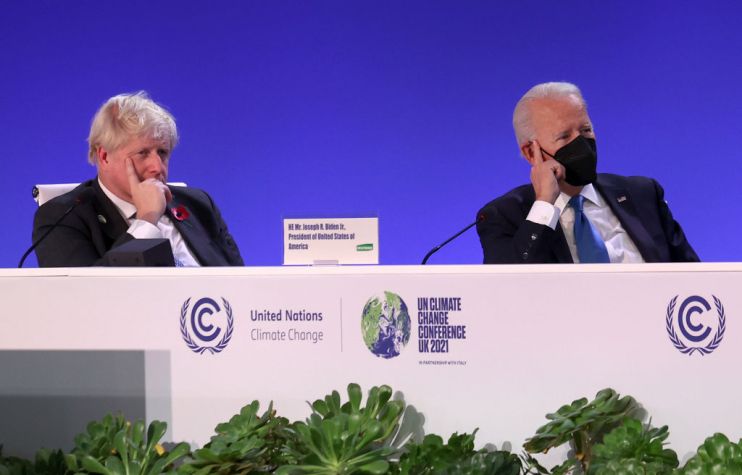Number 10 tells US not to ‘conflate’ Trump-era steel tariffs with Brexit

Downing Street has warned the US that tetchy UK-EU negotiations over the post-Brexit Northern Ireland Protocol should not affect any decisions made about Donald Trump-era tariffs on British steel.
A Number 10 spokesperson said “we do not think those issues should be conflated”, after reports today that the US was not removing tariffs on British aluminum and steel exports due to the UK’s negotiating position on the Northern Ireland Protocol.
Joe Biden’s administration scrapped the 25 per cent tariffs on EU steel and aluminum exports in October, however they remain in place in the UK.
A communication from the US Department of Commerce, leaked to the Financial Times, said Boris Johnson’s threats to trigger Article 16 and suspend the Northern Ireland Protocol were holding back any progress in scrapping the UK tariffs.
The communication also said the White House had told the British government this.
Negotiations between Brussels and London over the implementation of the Northern Ireland Protocol continue to drag on, with Johnson refusing to back down from his threats to trigger Article 16 if the EU does not make fundamental changes to the treaty in order to drastically reduce border checks on goods crossing the Irish Sea.
Johnson’s official spokesman today told journalists that “it’s important not to conflate those two issues – they are two separate points”.
“We are working closely with the Biden administration, it’s encouraging they’re taking steps to de-escalate the issue,” he said.
“We do not think those issues should be conflated.”
Trade minister Penny Mordaunt was also bullish today, telling MPs: ” The secretary of state [Anne-Marie Trevelyan] will be discussing the issue of steel and other matters next week with her opposite numbers in the United States. But we don’t do ourselves any favours if we perpetuate these false narratives.”
Trump introduced a 25 per cent tariff on steel exports and a 10 per cent tariff on aluminium exports from the EU, Mexico and Canada in 2018.
Trump’s White House said the trade barriers were required for national security reasons, however the policy was widely thought to be a part of the ex-president’s attempt to boost US manufacturing.
The UK responded with its own tariffs on US bourbon imports that still remain in place.